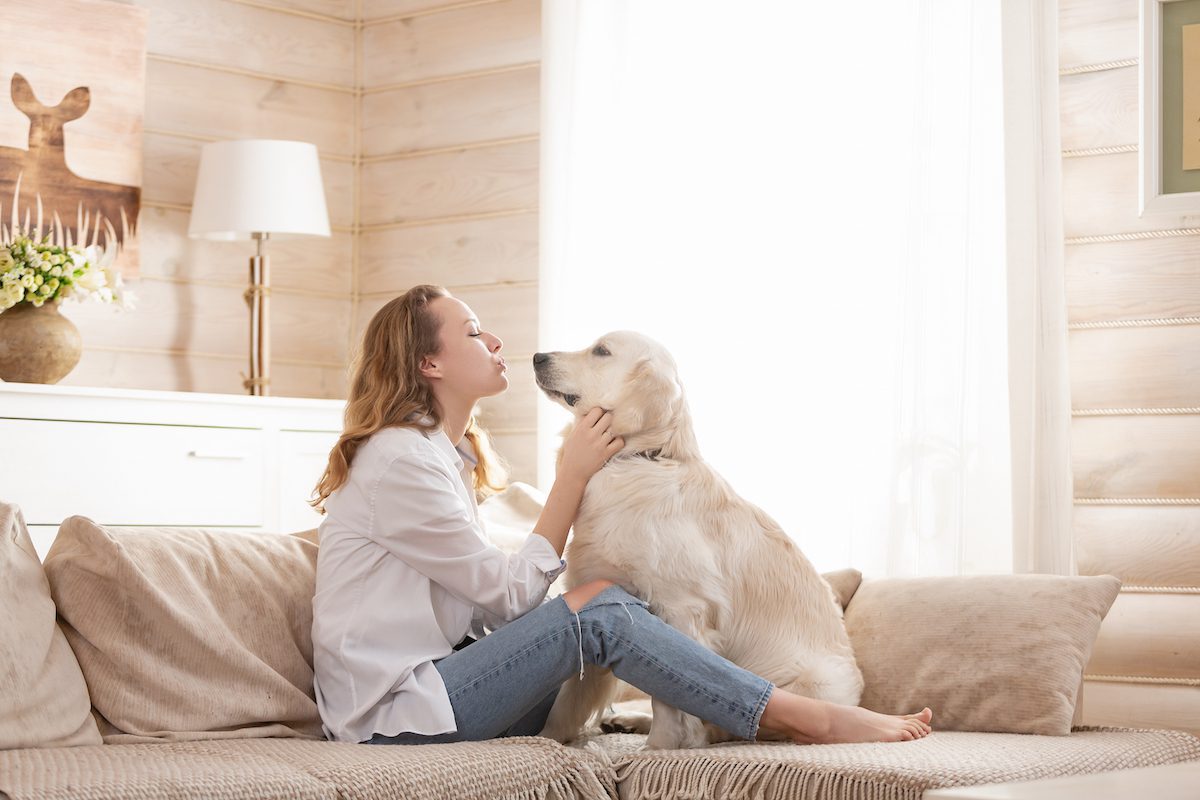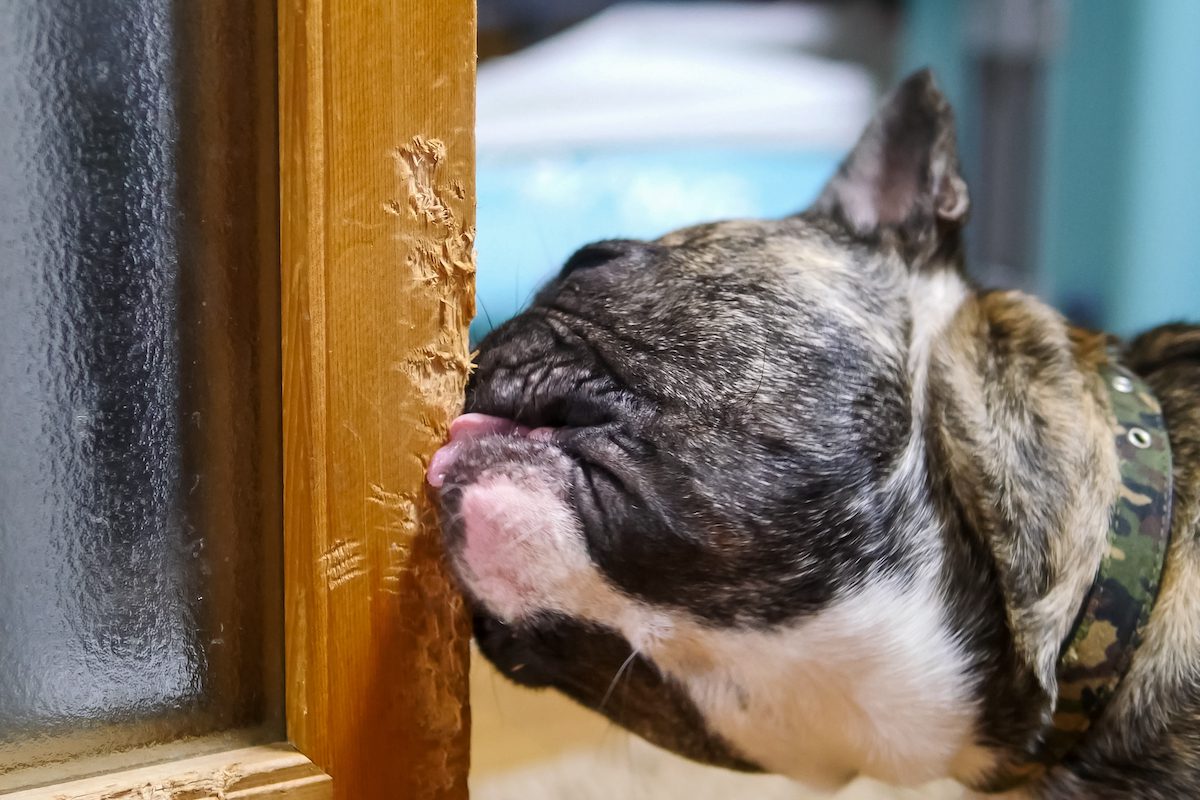Landlord’s Guide to Renting to Tenants With Pets

If you have a furry companion, then you know your animal is more than just your pet — they're part of the family. And, when it comes to moving, finding pet-friendly rentals is a top priority.
But, even if renters consider themselves responsible pet owners, there are some things to consider as a landlord. While dogs and cats are cuddly and cute, they can also get quite destructive. So, allowing pets in your rental property (or not) is an important decision to make.
Leasing rentals with pets
About 70 percent of U.S. households are pet owners, so having a pet-friendly property opens the door to a broad slate of renters. And, since a lot of rental housing doesn't allow pets, tenants will likely jump at the chance to rent your home when they can bring their beloved four-legged friend and then stick around, which will minimize your vacancies.
But, you need to set a strong pet policy, charge a pet fee and a pet deposit and include a pet addendum with your lease agreement if you're allowing pets. We've created a guide to help you through the process of renting to a pet owner.

The benefits of renting to animal owners
Having a companion animal can make living alone or with a family that much better. You'll even scour the internet trying to find an apartment that allows you and your furry friend to live together. As a landlord, this is something to consider — it could even increase your chance of renting out units. If you want to keep tenants happy, then consider these benefits of allowing pets.
You have access to more renters
As mentioned above, a lot of tenants also own an animal and are responsible pet owners. And, because many landlords and apartment complexes have a no pet policy, by allowing animals, you'll increase your renter pool. By creating a pets-allowed apartment, you could very well have more tenants sign with your complex.
You'll likely always have a renter
Once people find rentals that allow pets, they'll likely stick around and keep renewing their lease. Because of this, you won't have to search for a new tenant and you'll have a consistent cash flow on that unit because you allow pets.
You can charge a pet fee or a pet deposit
One benefit of allowing pets in your rental is that you can charge more money with pet deposits — just make sure these fees are part of the pet agreement. What does the pet deposit cover, though? It will cover any damages caused by the animal and help pay for things such as cleaning or repair costs. You can charge a pet deposit, pet rent and pet fees.
- A pet deposit is a refundable fee paid when a tenant signs the lease. The pet deposit is typically 40 to 85 percent of the monthly rent. Property owners typically hold on to the pet deposit until a tenant moves out to cover any damage or repairs and then, refund the balance. You may charge an additional pet deposit for each pet living in the home.
- Pet rent is a monthly fee that's paid in addition to the rent. It typically runs $10 to $50 a month per pet. Double-check with your local renter laws that you can charge pet rent, as some states don't allow landlords to charge pet rent for rental properties.
- A pet fee is a one-time fee that you might decide to charge instead of a deposit. The fees are nonrefundable and range from $100 to $500.
Charging a recurring fee or one-time fee will protect you in case of any pet damage or if you need to deep clean the rental properties before someone new moves in.
You'll find more responsible tenants
Taking care of an animal tends to require a lot of care and work. Because of this people who own pets are usually more responsible. This sense of responsibility will likely flow over into being more responsible for an apartment compared to other tenants.

The downsides of renting to pet owners
While there are benefits to allowing pet owners to rent apartments, there are downsides and even some risks, as well. These are some of the risks you should consider when deciding whether to allow animals or not.
Pets can cause property damage
Sometimes, you can't help it, dogs will be dogs. It's important to remember that four-legged tenants can wreak havoc on a rental property. They can chew up walls, scratch floors and tear things up. This kind of damage is costly to repair.
Pets are sometimes noisy and smelly
Barking, meowing, scratching or digging — pets are noisy creatures. And, that can disturb neighbors and create disputes between tenants.
From little accidents to shedding fur and dander, pets can stink up your rental property. So, allowing pets might mean you'll take on some extra cleaning costs when the pet-owning renters move out.
Pets could trigger allergies
Many people have pet allergies, and if you own a rental property with multiple units, you'll want to make sure other tenants don't have allergies, especially in common areas of the complex.
Pets could cause injury
From dog bites to cat scratches, a tenant's pet can misbehave or react to stress, causing pet accidents. And, this could cause injury to you or another tenant.

How to conduct a screening for a rental with pets
Allowing pets is up to you. But, keep in mind that the Fair Housing Act requires rental property owners to provide reasonable accommodations for service animals or emotional support animals. You can't deny a renter with a service or emotional support animal in most cases. Local housing laws and city laws may have provisions related to renting with a service animal, so make sure you're well versed in your local laws.
You always need to screen potential tenants before renting to them. But, it's even more important to screen tenants with pets to make sure they're responsible pet owners.
Meet the pet in person with their owner to conduct a pet interview to see how well-behaved and trained they are and snap a photo of it for your records.
Questions to ask a pet owner
As with any potential tenant, you should always conduct an interview of sorts before deciding to rent to them. It's no different when you screen tenants with pets, ask lots of questions including:
- How many pets do you have?
- What kind of pets do you have — and if they're dogs, what is the dog's breed?
- How long have you had the animal?
- How old is your pet?
- Is the pet properly licensed and up to date on its vaccinations?
- Is it spayed or neutered?
- Has the animal ever behaved in an aggressive way toward other animals or people?
- How do you treat the pet for fleas?
- Are you solely responsible for the pet's care? Who takes care of it when you're not home?
- Does the pet get along with other people or animals?
- Is the pet trained?
- What's the dog's temperament?
- Are your pets service animals?
Asking these questions upfront can save you a lot of hassle in the long run.
Make sure you and your tenant have adequate insurance
As you craft your policy, check to see what your homeowner's insurance covers. Some insurance companies have restrictions when it comes to pets in your rental. For example, they may not cover certain dog breeds, like pit bulls or Rottweilers, or large pets. So, it's a good idea to find out a pet's breed and other details, and contact your insurance company before signing a lease agreement with an animal owner.
Owners of pet-friendly properties should require tenants with pets to get adequate renters insurance that covers dog bites or other injuries caused by pets. Renters insurance might also help renters cover the cost of any property damage that the pets may cause.
Don't forget the HOA
Another thing to note is that if your rental property is in a homeowners association (HOA), the HOA might have pet restrictions. Find out what is and isn't allowed before you decide to allow furry friends.

What pet policies to include in your lease agreement
If you've decided to allow pets, you need to create a pet addendum, which is a document added to your lease for tenants with pets. The pet addendum should outline the pet policy, pet rules, the tenant's responsibilities and list the cost of the pet deposit, pet rent and any other fees.
When the tenant signs the addendum, they're agreeing to your pet policy, which should include provisions for the type, size and number of pets allowed. If you're thinking of making certain breeds restricted, then you'll want to add that to the pet agreement, as well. You might also limit tenants to one or two pets.
Responsibilities are key
But, the most important part of the pet agreement is to address pets and the tenant's responsibilities for them. Be sure to include items like:
- Tenants are responsible for cleaning up after their animals in your rental
- Renters attest that their pets aren't a nuisance to others
- Tenants must submit the pet's vaccination and licensing records, along with proof of spaying or neutering
- Dogs are kept on a leash when outside the home
- Tenants must follow breed restrictions
- Other animals, like snakes or birds, are kept in a cage
- An unauthorized pet isn't kept in the home
- Tenants are responsible for paying for any pet damage
- Tenants must obtain renters insurance that covers instances of a dog bite or other animal bites
If you accept pets and the tenant doesn't follow the lease or addendum, you can evict them. It's crucial to make that clear in the lease. Though, you'll likely be responsible for giving tenants reasonable notice of a lease violation.
Keep it legal
You want to make sure that you're applying your pet policy fairly to all your tenants with pets. To make sure you're following local laws regarding a tenant's pet, it's a good idea to talk to an attorney for help drafting your policy.

Should you allow pets in your rental property?
The decision to allow pet owners in your apartment building is an important one for landlords to consider. A pet-owning tenant comes with many benefits — you can charge higher rent and a separate pet deposit and many pet owners will likely renew their lease. But, when you're pet-friendly, you take on some risks, including damage or injury. That's why it's important to set pet policies and screen tenants with their pets and charge a pet deposit in addition to a normal security deposit.
